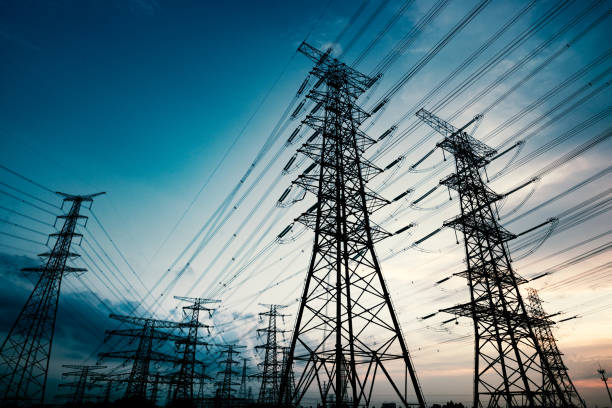By Barbara Heimlich
Editor
Sources: PURA; Connecticut Office of Consumer Counsel (OCC); Patch; Jamie Ratliff, Senior Media Relations Specialist Eversource Energy;
Connecticut Public Utility Regulatory Authority (PURA) last week approved allowing even more increases to electric bills of customers of both Eversource Energy and The United Illuminating Company (UI).
PURA notified residential and business customers of changes to standard service generation rates that become effective July 1, 2024, through December 31, 2024, and changes to various other bill charges known as the Rate Adjustment Mechanism (RAM) components that become effective July 1, 2024, through April 30, 2025. Eversource and UI sent out notices that an increase was coming, however most customers were under the impression bills could increase a few dollars – not hundreds of dollars.
On July 1st the utilities added to our bills the public benefits charge which increased that portion of Eversource Energy customers electric bills dramatically. Adding fuel to the fire, electric utility customers can expect a rate increase starting September 1st. The PURA Commissioners approved an increase in the public benefits charge section of the bill through an annual accounting, Rate Adjustment Mechanism.
The increase for both Eversource and UI will add 0.385 cents per kilowatt hour to the electric bills of Eversource customers, and increase what customers of UI pay by 0.4592 cents per kilowatt hour. The latest hikes are designed to help pay for improving the state’s electric vehicle charging grid.
Read It and Weep:
Our state is ranked #5 in the United States for having the highest cost of electric:
| State | January 2024 ¢/kWh | Price vs. National Average |
| Hawaii | 44.28 | +187% |
| Rhode Island | 31.22 | +102% |
| California | 29.49 | +91% |
| Massachusetts | 28.34 | +83% |
| Connecticut | 27.4 | +77% |
| Maine | 25.89 | +68% |
| New Hampshire | 25.07 | +62% |
| Alaska | 23.78 | +54% |
| New York | 23.44 | +52% |
Politicians Stepping Up After Constituents From Across the State Complained!
Republican State Representative Vincent Candelora and Sen. Stephen Harding said PURA’s actions during the meeting will further burden customers.
“These rate adjustments for Eversource and United Illuminating of an additional $80 million starting in September to enhance the EV charging grid will further burden ratepayers already struggling to pay their monthly electric bills,” they said.
State Representative Joe Gresko submitted a Formal Motion to PURA Requesting Reconsideration of Recent Rate Adjustments this week. In his letter to PURA, Rep. Gresko noted that “after several weeks of consumers receiving bills with historically high summer usage, it seems accurate to categorize ratepayer impact as “rate shock.” Communication by the utilities and others regarding anticipated bill increases have significantly underestimated impact, and public harm is significant.”
Rep. Gresko is Chair of theEnvironment Committee and a member of the Energy and Technology Committee in Hartford.
State Republicans have been calling on Gov. Ned Lamont (D-Conn.) to hold a special session on climbing electric rates, saying they want consumer choice instead of electric vehicle mandates.
Washington Representatives Weigh In
Representative Joe Courtney (2nd District), along with U.S. Representatives John Larson (1st District), Rosa DeLauro (3rd District), Jim Himes (4th District), and Jahana Hayes (5th District) sent a letter to PURA in support of the General Assembly Committee on Energy and Technology’s motion to reconsider the rate increase was submitted last week.
Connecticut’s U.S. House delegation is urging state utility regulators to “lower costs for consumers,” and “reconsider the sharp increase in (energy) rates that is putting pressure on Connecticut’s workers, families, and small businesses.”
“Although as federal representatives we do not have any formal role in the process of setting rates or in the oversight of utility companies, we have all heard from numerous constituents and businesses that are experiencing significant increases in bills in the wake of the recently implemented rate adjustment,” the House members wrote. “For this reason, we strongly support the motion to reconsider, and believe that PURA should consider alternative strategies for meeting the state and utility providers’ statutory and financial obligations that do not unduly burden ratepayers, especially in the historically high-usage summer months.”
House members are “working at the federal level” to lower energy costs and provide “relief” to consumers facing high bills. “We have diligently advocated for and secured increased funding for the Low Income Home Energy Assistance Program (also known as LIHEAP) above an initial request from the Executive Branch, regardless of which party controlled the White House,” the House members wrote. “We also secured new renewable energy funding and tax credits for Connecticut households and businesses as part of the 2022 Inflation Reduction Act.
“The IRA created historic rebate programs that can help homeowners save money on home improvements that lower energy bills as well as tax credits for installation of energy efficient heat pumps and weatherization improvements.”
When PURA commissioners approved the increase in the public benefits charge increase that went into effect in July, the average impact to an Eversource residential customer’s bill was estimated to be $48 per month. Officials with the Officer of Consumer Counsel, which represents the interests of ratepayers of regulated utilities, say the wide disparity in those numbers may be indicative of several things.
The first and perhaps most important factor for the disparity between the two numbers is that the calculation is tied directly to how much electricity is used by customers. That’s why some Eversource customers saw their public benefits charges increase by hundreds of dollars, while others saw an increase in that billing category that was considerably less. In addition, on customers’ bills there are supply and transmission categories that are also dependent on usage. An abnormally hot June and July spiked usage, leading to those charges plus the public benefits charge, increasing costs dramatically for many.
Jamie Ratliff, Senior Media Relations Specialist Eversource Energy, said the utility’s customers typically use 35 percent more electricity during the summer under normal conditions, and this July was the hottest ever in some parts of Connecticut.
Another factor, according to Ratliff, is the public benefits charge increase that went into effect in July, which covered a variety of components, including paying for power purchase agreement costs associated with the Millstone nuclear power plant and unpaid customer bills. Some of those costs accumulated because they had not been collected since last year, she said. “With the July 1 increase, you were paying for last year’s costs and this year’s cost,” Ratliff said.
The increase in Eversource bills scheduled to take effect September 1st is largely focused on providing incentives for residential customers and other rate groups to purchase chargers for electric vehicles, according to Ratliff. Those incentives are being paid for through the public benefits charge.
Ratliff said that the company tried to warn people about a year ago. During the conversation on the Chaz & AJ In The Morning Show she offered little insight on who’s responsible for the price increase, but did share tips for customers on how to lower their monthly usage. Ratliff said any changes that might need to be made to customers’ electric bills would require the approval of PURA.
Officials with the OCC say the time may have come to rethink how the financial impact that PURA rulings have on customers of the state’s two largest electric distribution companies is calculated. Currently, the average impact is calculated based upon a customer using 700 kilowatt hours per month. But according to the OCC, that average is based on taking the overall annual usage and dividing it by 12 months, which can result in underestimating the average customer impact.
But using that method might be resulting in UI and Eversource officials underestimating the average monthly financial impact on customers, OCC officials said this week. One possible solution could be to estimate the financial impact upon residential customers by developing an average usage number for every month and basing the calculation on that.
What Can I Do About My Bill?
Call your electric supplier (Eversource or UI) who, according to their websites, will work with you to develop a payment plan or submit your bill for their low income programs.
United Illuminating: (800) 722-5584
Eversource: (800) 286-2000




Why are we paying for other people who didn’t pay their Bill. Seems to me you should be taken care of that not the people who already paid. And as far as the EV stations Connecticut does not want those and if there’s people who do want them let them pay for it.